You might not be able to tell by driving through rural Delaware, but there’s a lot of technology happening in those fields, from autonomous tractors and combines to smartphone apps.
So many smartphone apps.
“Technology wise, [the smartphone] is by far the biggest technological advantage for me,” said Bobby Fifer, fifth-generation farmer and owner of Fifer Orchard in Wyoming in Kent County, holding up his phone to a group of University of Delaware students and faculty, local entrepreneurs, technologists, public servants and this reporter, on a visit organized by the Delaware Prosperity Partnership.
“I don’t have to go to the office anymore. I can do everything in the fields — emails, texting, phone calls. It’s huge.”
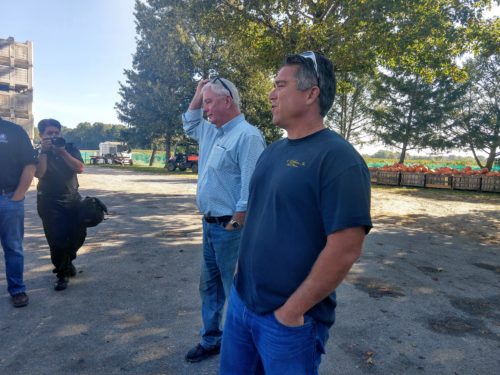
Bobby Fifer of Fifer Orchard. (Photo by Holly Quinn)
Brandon Bock, who, with his wife and seven employees, farms about 2,800 acres of corn and potatoes in Kent County, uses six weather apps on his phone alone.
“I use Farm Futures a lot, which has weather and is a commodity tracker, so I can see my commodity prices in real time,” said Bock. “When irrigation is running, I check that irrigation app nonstop. When my grain dryer is running I can check constantly from the combine. The ones that allow me to look at other parts of my operation without me being there are of the most value.”
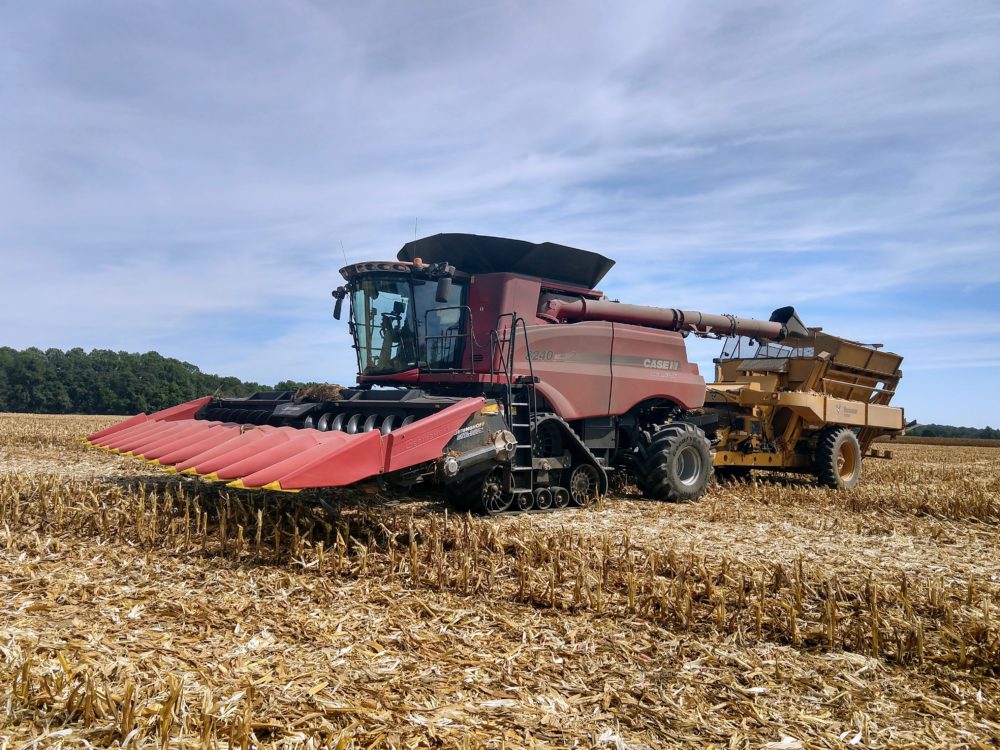
Bock’s Geringhoff Rota Disc combine. (Photo by Holly Quinn)
Bock’s combine, a massive high-tech Geringhoff Rota Disc, has a tablet running Climate Field View, a platform that collects harvest data and allows him to look at it alongside other data they collect throughout the year to determine practices that work best for yield and quality throughout the year.
“It collects the data the whole time I’m combining and sends it to the cloud, so I can view it anywhere,” he said. “We’ve had that for around for three to four years now.”
Virtually all of today’s tractors and combines use auto-steer.
“Auto-steer on the tractors has been huge for us,” said Fifer. “Any tractor that does any major amount of field work has auto-steer, GPS or some kind of computer telling us what’s going on all the time.”
Fifer and Bock are relatively small farmers compared to big corporations like Perdue, which has a large operation in Milford. And, while some family-owned farms in Delaware contract with Perdue, making the state’s largest agricultural product broiler chickens (which brought in $956 million in cash receipts in 2015, compared to $108 million from the next biggest product, corn), Delaware farmers produce everything from wheat to soybeans to hemp.
In Fifer’s case, fruits, vegetables and berries are the main products — with apples and pumpkins a major harvest in the fall, and the big draw to the Wyoming orchard’s retail store and its second location in Dewey Beach.
“Sweet corn and pumpkins are by far our biggest acreage crops,” said Fifer. “Our minor crops are tomatoes and strawberries, the rest [including apples and peaches] fall in between. Harvest lasts from early-mid-April to almost Christmas, depending on how cold it gets. It keeps labor busy as long as we can. If we have gaps in the season, they’re not happy and we’re not happy.”
Fifer produce can be found anywhere from local farm stands to Wal-Mart.
“We sell to guys with roadside stands who come in here with a pickup to buy 20 to 30 cases, and the same day we’ll be shipping 1,000 cases on a tractor trailer to a big supermarket,” he said.
The orchard’s optical fruit sorter, which auto-sorts by color and size, is about 15 years old — not a cutting-edge machine by today’s standards, but still much faster than manual sorting. With the machine in use only three or four times a year, a new sorter isn’t a priority, Fifer said.
“The bigger guys have blemish and sugar content sorters,” he said. “It’s pretty amazing what they can do now.”
One area that’s had an impact on agriculture is logistics: “We deal with RPCs now, which are returnable containers,” said Fifer. “They recycle them, so instead of buying a create that’s plastic or wood, we rent a container for a little bit less money. It goes through our buyers, who return the crate to the rental company, who washes it and ships it back to us.”
“I think computers have made that possible logistically,” he said. “I can’t imaging keeping track of that on a piece of paper.”
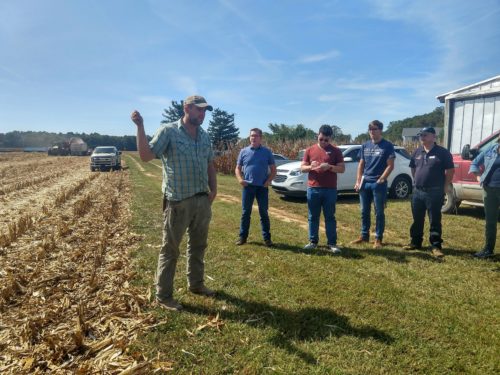
Farmer Brandon Bock. (Photo by Holly Quinn)
With agtech being such a large economic driver in Delaware, finding solutions to agricultural problems draws entrepreneurs and academic researcher to farmers, looking to hit on the next big agtech product. Bock said he travels to about three ag conventions a year, plus some in-state, like the Delaware Cooperative Extension’s Delaware Ag Week in Georgetown in January.
“Usually it’s the private sector that gets us involved with something new,” Bock said. “Somebody will come out to the farm with a pitch like, ‘Here’s how I can make you five dollars more an acre,’ and we look at it.”
Though farmers generally do try and attend events to see new tech, entrepreneurs looking into agtech shouldn’t rely on farmers having time off in the winter for networking.
“Farming is 12 months of the year,” Bock said. “We’re actively in the field probably seven months, with three-quarters of a million bushels of corn to move in the winter time with seven employees. Farming is not sitting back in the wintertime.”
Join the conversation!
Find news, events, jobs and people who share your interests on Technical.ly's open community Slack
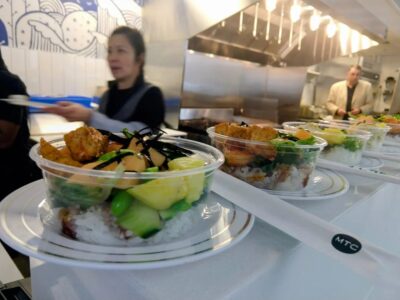
Delaware daily roundup: DE in DC for 'Communities in Action'; diversifying the coffee supply chain; Invista's future
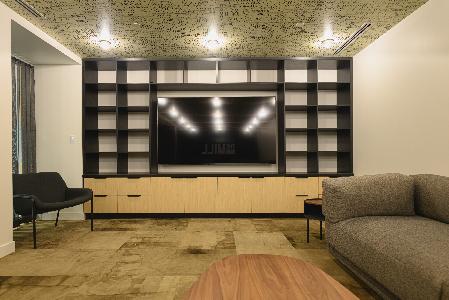
Delaware daily roundup: Where to cowork in 2024; Intertrust Group rebrands; the Visitor Bureau's new website

Delaware daily roundup: Bronze Valley Venture Labs returns; AI and SaaS' future; $200K for students' health careers


